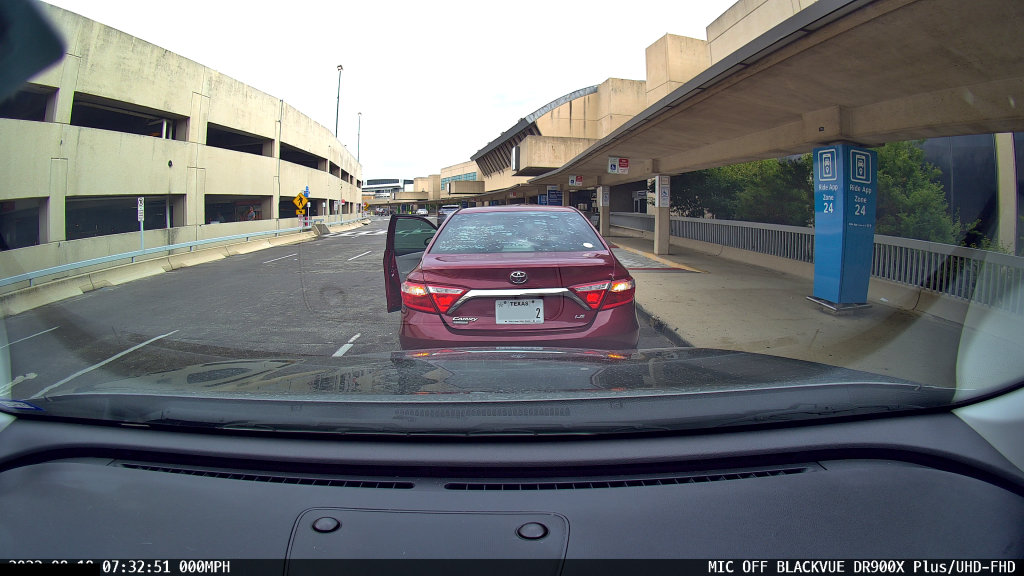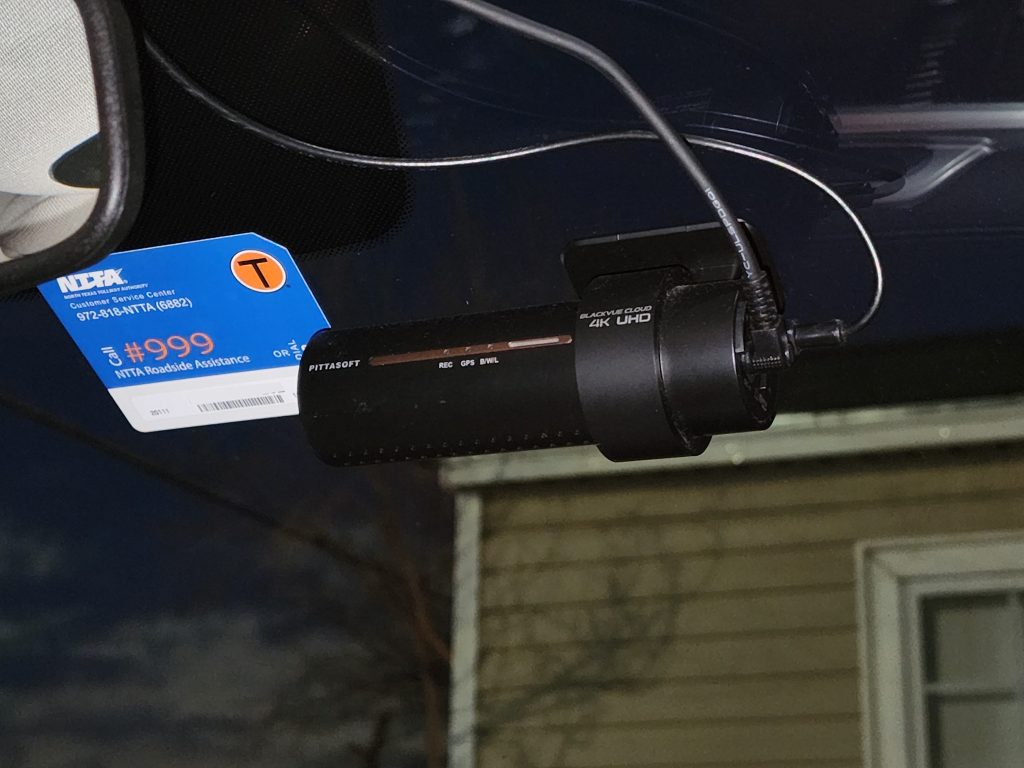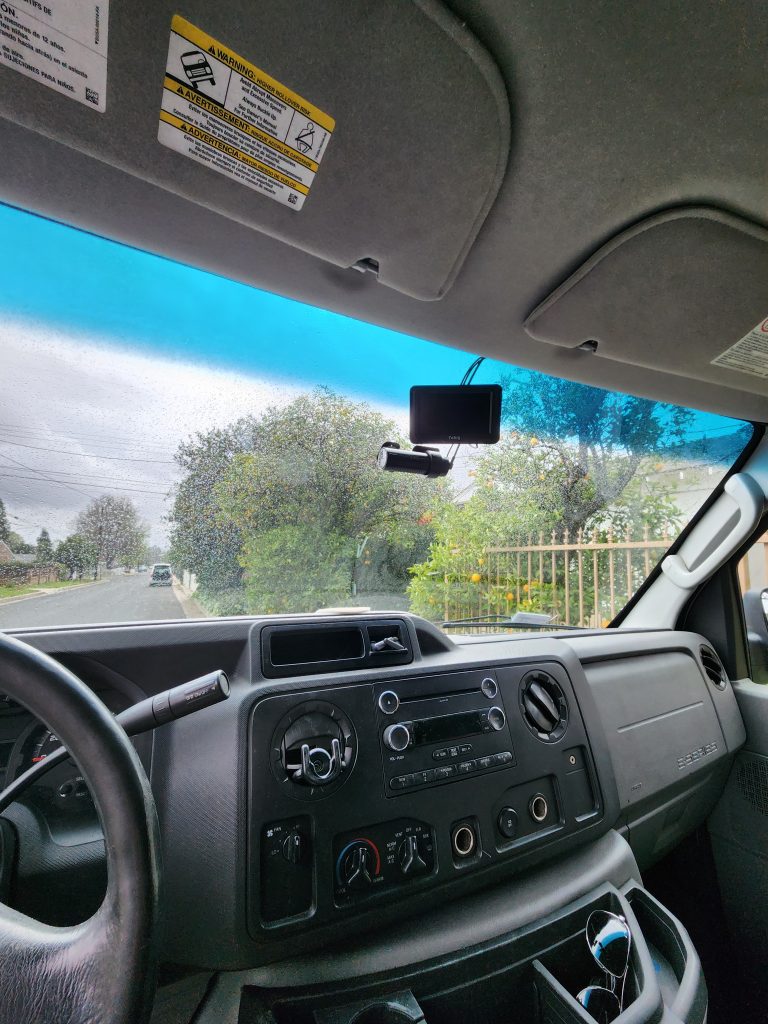We’ve all seen the most intense car crashes caught on dashcam on Youtube. I am writing this article based on my experience using multiple dash cams over a few years and reviewing their quality.
I’ve spent the past 15 plus years installing professional CCTV systems, and have on occasion installed CCTV systems in vehicles to capture more than a dashcam would. This includes stock control in delivery vans, workers comp claims from injuries inside a work vehicle, etc. Most professional security cameras will do a much better job than a dash cam due to higher frame rates and higher resolutions.
Well, most of us don’t have the luxury of installing a mobile DVR and bulky cameras around our vehicles to record those details in high resolutions. I own a few vehicles, and have tried 3 different dashcams in the past 3 months with different opinions on them.
My Favorite Dashcam
My favorite dashcam to use is the Blackvue DR900X Plus 2-Ch. This camera records in 4K Ultra High Definition at 30fps, and has a rear-facing camera that records in 1080p 30fps. These specs are great for clarity and general everyday driving to and from work, school, etc.
I installed this camera in my wife’s vehicle a few months back, and it saved her against a false insurance claim by showing accurate details and speed in the video. According to the other party, she rear ended them with an impact strong enough to cause not just damage to the vehicle but also personal injury to the driver and a passenger. After submitting video to the insurance company, the clarity of the video showed no impact between the vehicles and no passenger in the other party’s vehicle. To show how clear the image is, I’ve attached a snapshot from the incident below in full resolution.



My Pick for My Work Vans
As for my company work vans, I chose the Blackvue DR750X Plus 2-CH. This camera is a lower resolution, 1080p Full HD. However, it records in 60fps and at highway speeds makes it a better choice to capture smoother detail while vehicles are moving at a faster rate. This allows videos to be investigated in more detail and see smaller fractions of a second at high speeds.
As our clients who have interacted for me for years know, we work in cargo vans and drive upwards of 40,000 miles a year in them. Not only that, but we work in some not-so-nice neighborhoods. I actually have picked this camera for the vans I own based on the technical differences. If we are driving at higher speeds and a vehicle sideswipes one of our vans, the possibility of capturing a license plate is better.
Connectivity
Both of the above Blackvue cameras offer cloud connectivity through WiFi using a phone app. This is a great solution since I have vans in multiple states. Blackvue also offers a 4G LTE Hotspot allowing the camera to be connected 24/7 through the AT&T or T-Mobile network.
Other Easy-to-Use Dashcams
I installed in my old 1993 Jeep a Nexar Beam camera. I used this camera as it was less expensive than the Blackvue, but also it’s being used in a car that isn’t a daily driver. I primarily use the Jeep for fun times in the woods, camping, and the occasional high speed mudding! I use this camera to capture fun times and store them on Youtube for private sharing with the family. If you’re looking for a decent camera without spending over $125, then this is another good solution that will capture 1080p at 30fps.
Budget Dashcams – STAY AWAY
You can easily pickup a dashcam on eBay or Amazon for under $50. I recommend you stay clear of these cheap budget cams. The image sensors, lens, processors, and even video format used to record the video will give you a much lower quality video. As much as sun shining straight down through the windshield on to the lens can distort the image and wash out important details.
Another drawback to budget dashcams is the level of video compression used. Even if the video is being recorded at 30fps, I have seen video files come in from budget cams that have a higher level of compression than expected. The higher the compression on the file, the less quality in detail you will receive in the video file. This is a technical setting we consistently see in the professional CCTV world. Just because you have a 4K UHD camera does not mean the video quality will be better.
Bitrates and compression methods are important to video quality. The Blackvue cameras I’ve tested have a very low compression rate to them which allows for a higher bitrate, thus allowing each video frame to contain more data in it. Remember the phrase, you get what you pay for.